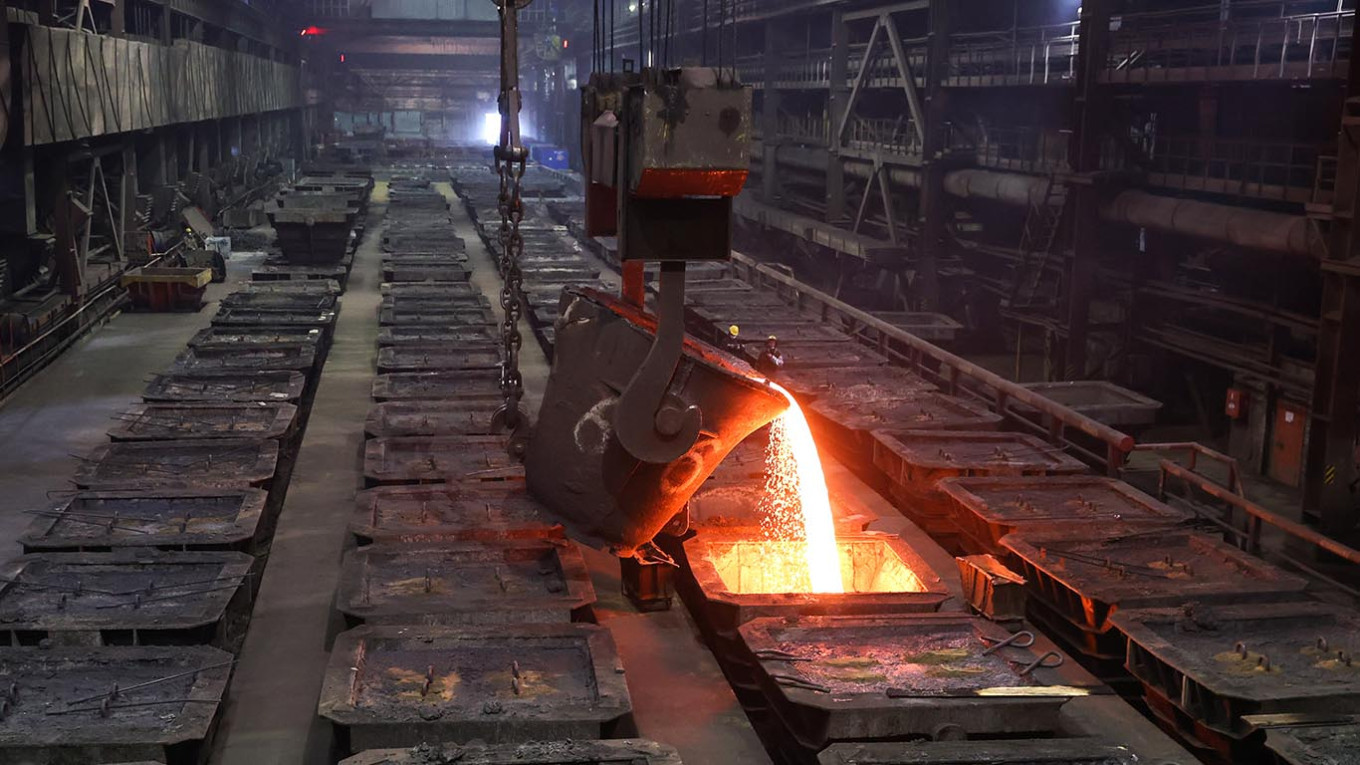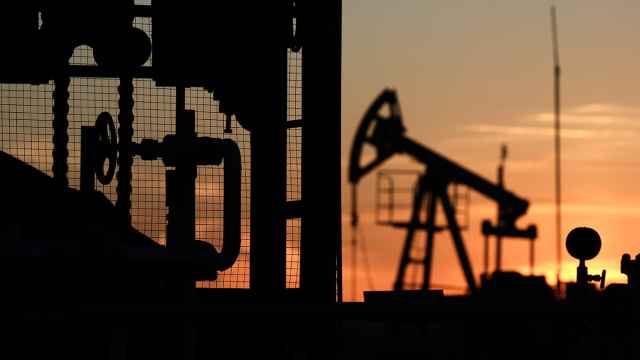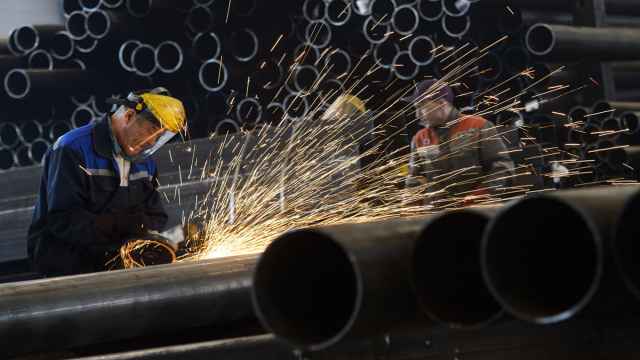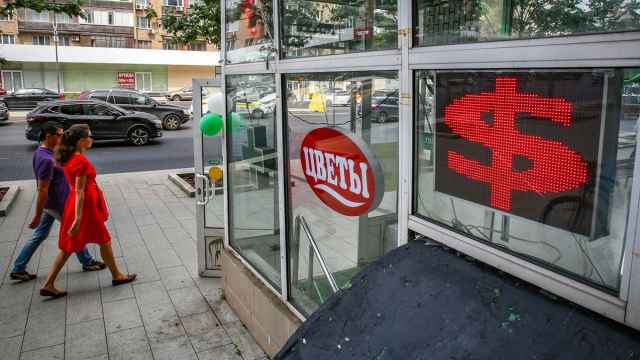Russian businesses are under mounting pressure from debt servicing as interest payments consumed a record 39% of pre-tax, pre-interest profits in September, according to estimates by the Kremlin-linked Center for Macroeconomic Analysis and Short-Term Forecasting (CMASF).
The share rose 1.5 times in the first nine months of the year and has more than tripled over two years.
“The burden from interest payments on corporate income is at an extremely high level,” CMASF said.
Corporate profits are falling while borrowing costs remain elevated. Companies’ aggregate financial result — total profits minus losses — was 8.3% lower in January-August 2025 than the same period a year earlier, according to state statistics agency Rosstat.
The share of profitable firms slipped to 70% from 72.2%, profits fell 1% and losses at unprofitable companies jumped 30.2%.
Corporate liabilities continue to rise. Banks’ credit claims and outstanding corporate bonds reached 99.3 trillion rubles on Oct. 1, up 10.4% year-on-year, Central Bank data show.
As a result, CMASF said profitability in industry has dropped to levels close to the lows seen during the Covid-19 period, while the gap between profit margins and lending rates hit an all-time high.
The share of borrowers — companies and individual entrepreneurs — with overdue bank loans increased to 24.1% at the start of October, up from 17.9% at the beginning of the year.
CMASF described the debt load as a structural problem. It estimated that obligations exceed EBITDA by 5.9 times in construction and by 4.1-4.6 times in wood processing, automotive manufacturing and commercial services.
The strain is compounded by a sharp economic slowdown. GDP growth eased to 0.6% year-on-year in the third quarter after 1.1%, 1.4% and 4.5% in the previous three quarters, Rosstat reported.
CMASF said the economy is stagnating, industry is balancing between stagnation and decline and consumer demand is weakening.
Its leading indicator crossed a critical threshold in July, signaling a high risk of recession within a year, and continued rising in August.
Former Central Bank deputy chairman Sergei Aleksashenko said the problem is not only the level of interest rates but the prolonged period during which they remain high.
Companies could rely on reserves accumulated during the previous two years of fast growth, he said, but those buffers are now depleting.
The Central Bank has been cutting rates since June, but the economy is only beginning to feel the consequences of the previous high rates, he warned.
CMASF compared the economic shocks of 2020, 2022 and 2024-25 and concluded that the current period of persistently high rates is at least as severe for corporate finances as the COVID crisis and the initial shock of wartime sanctions.
It estimated that companies accounting for 23.7% of revenue are in a “financially vulnerable” zone this year, rising to 32.5% next year.
Sectors facing “across-the-board deterioration” — declining profitability, rising arrears, falling revenue — include extractive industries, textiles, clothing, furniture, machinery and equipment and motor vehicle production.
High rates are transferring corporate profits to the banking sector, said Oleg Vyugin, a former first deputy chairman of the Central Bank.
But banks, he noted, are also paying out high interest to depositors.
Banking sector profits are expected to fall to 3-3.5 trillion rubles this year from last year’s record 3.8 trillion, according to Central Bank forecasts.
A Message from The Moscow Times:
Dear readers,
We are facing unprecedented challenges. Russia's Prosecutor General's Office has designated The Moscow Times as an "undesirable" organization, criminalizing our work and putting our staff at risk of prosecution. This follows our earlier unjust labeling as a "foreign agent."
These actions are direct attempts to silence independent journalism in Russia. The authorities claim our work "discredits the decisions of the Russian leadership." We see things differently: we strive to provide accurate, unbiased reporting on Russia.
We, the journalists of The Moscow Times, refuse to be silenced. But to continue our work, we need your help.
Your support, no matter how small, makes a world of difference. If you can, please support us monthly starting from just $2. It's quick to set up, and every contribution makes a significant impact.
By supporting The Moscow Times, you're defending open, independent journalism in the face of repression. Thank you for standing with us.
Remind me later.






